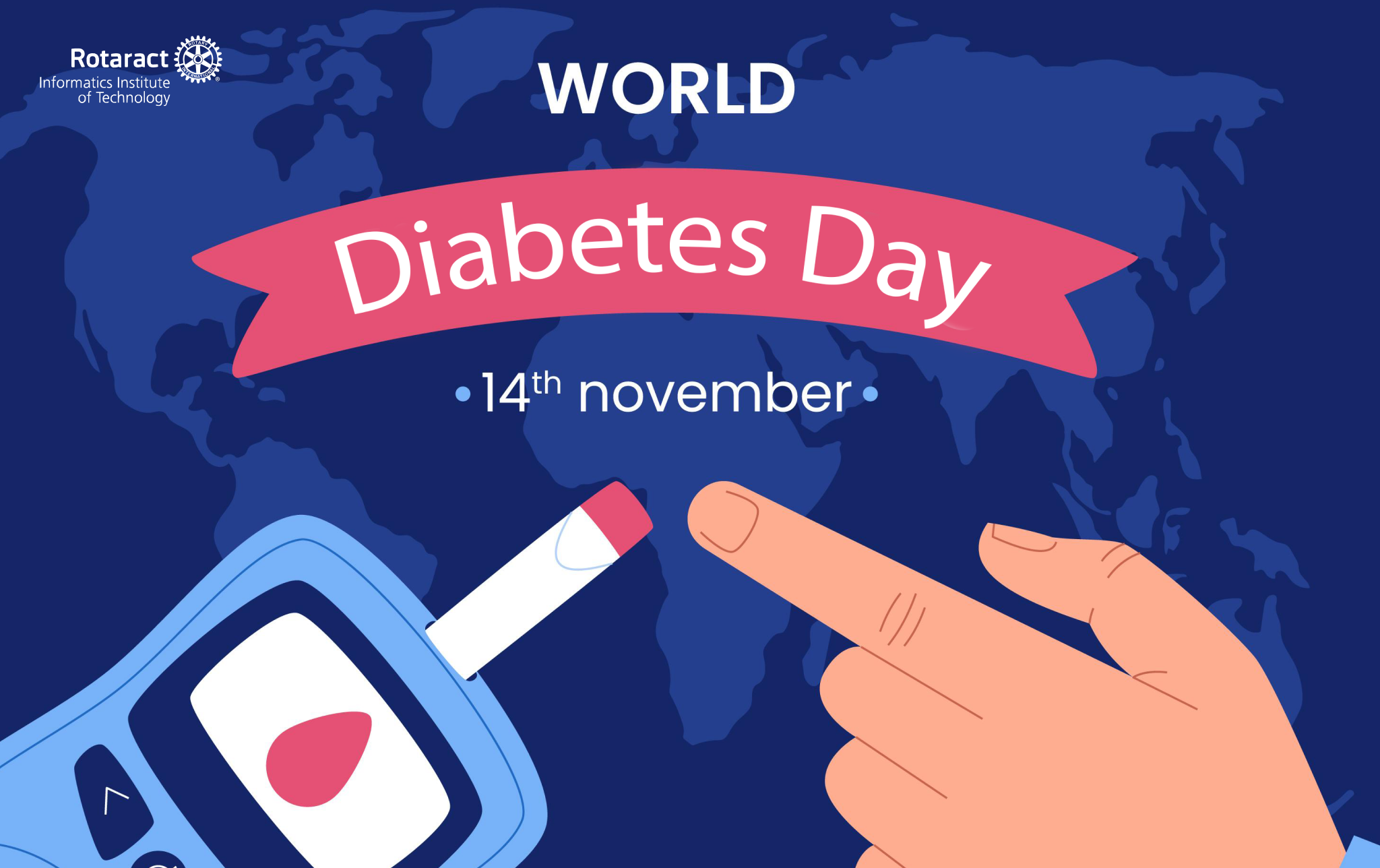
World Diabetes Day: A Call to Awareness, Prevention, and Compassion
Imagine waking up every morning knowing you must manage a delicate balance of blood sugar just to get through the day. For millions around the world, this is not just a choice; it’s a life-long commitment. World Diabetes Day, observed on November 14, brings attention to the lives impacted by diabetes—a relentless condition that can’t be ignored. Created in 1991 by the International Diabetes Federation and the World Health Organization, this day shines a light on the reality of diabetes, a condition that, though manageable, often feels like a full-time job.

Diabetes comes in different forms, each with its unique challenges. Type 1 diabetes, often diagnosed in children, is an autoimmune disorder where the body’s immune system attacks the cells that produce insulin, a hormone essential for processing sugar. People with Type 1 diabetes must inject insulin daily, relying on careful calculations and monitoring to stay balanced. Type 2 diabetes, more common and usually occurring later in life, is often linked to lifestyle factors but has a strong genetic component as well. Though it can sometimes be managed with lifestyle changes, Type 2 diabetes is not “easier” than Type 1—it’s just different. And then there’s gestational diabetes, which affects some women during pregnancy, raising future risks for both mother and child.
Every type of diabetes demands daily dedication. Blood sugar monitoring, food planning, exercise, and sometimes medication are all parts of this routine, leaving little room for spontaneity. Managing diabetes can be overwhelming; it affects not just individuals but entire families who pitch in with support, adjust routines, and offer encouragement. It’s a family journey as much as a personal one, reminding us of the strength that comes from community and shared responsibility. World Diabetes Day is a day to honor this dedication, the daily courage of those managing diabetes, and the family and friends who stand beside them every step of the way.
Diabetes also weighs heavily on healthcare systems worldwide, which are increasingly strained by the growing numbers of people affected. The costs associated with treatment, particularly the long-term complications that can arise, add up quickly. Issues such as heart disease, kidney failure, and nerve damage are common complications, often requiring extensive and costly medical intervention. This day is a call for stronger preventive measures: promoting healthier diets, encouraging physical activity, and fostering environments that support a balanced lifestyle. If prevention is possible, we need to make it a priority—not only to reduce the burden on healthcare systems but to give people the chance to avoid this life-altering condition.
Stigma and misunderstanding are other challenges for people with diabetes. Many misconceptions create harmful stereotypes, leading some to believe that diabetes is simply a result of poor choices, overlooking the complex combination of genetics, environment, and societal factors. On World Diabetes Day, we aim to replace judgment with understanding. For people with diabetes, the daily regimen isn’t optional; it’s necessary. By spreading awareness, we foster a society where people with diabetes feel empowered and supported, rather than unfairly criticized.
One of the most pressing issues highlighted on World Diabetes Day is the lack of access to affordable insulin and essential care. Insulin, a discovery that’s saved countless lives, remains out of reach for many people worldwide, especially in low-income countries. High costs mean some people are forced to ration their insulin, putting them at serious risk. Advocates are calling for systemic change, pushing for insulin and diabetes care to be accessible to all. This day is a reminder that diabetes management should be a universal right, not a privilege reserved for the few who can afford it.
World Diabetes Day is a global call to action. It’s a reminder that each of us has a role to play in supporting people affected by diabetes, educating ourselves and others, and advocating for better healthcare solutions. More than just a day of awareness, it’s a day of unity and commitment—a day to rally around the resilience of those living with diabetes. Through this global recognition, we push forward toward a future where managing diabetes is easier, care is accessible, and communities are empowered to prevent Type 2 diabetes through healthier living.
It’s a day to stand in solidarity, to recognize the courage of those who face diabetes with strength and resolve, and to commit to a future where no one faces diabetes alone. Whether by learning more, supporting loved ones, or advocating for better healthcare policies, each of us can be a part of this movement. This November 14, World Diabetes Day, let’s stand together and take a step toward a healthier, more inclusive world.






